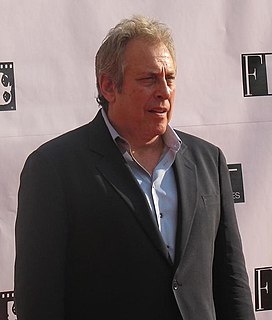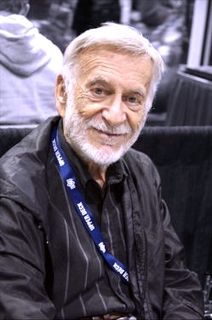A Quote by Charles Roven
The story of Kal-El is actually a great story about adoption. He is an alien who has embraced his human side. As much as he loves and honours his heritage, and he needed to know where he came from and discover who he was, he has to decide who he is going to be.
Related Quotes
You look at Superman, the story of an orphan coming to America, keeping his identity secret and even the names, Kal-El and Jor-El, you can trace lines to the background of the creators, Jerry Siegel and Joe Shuster, both Jewish. Overall, there was a remarkable confluence of events that led to the medium and the Jewish participation.
I wrote The Jesus Storybook Bible because I wanted children to know the Bible isn't mainly about you and what you're supposed to be doing. It's about God and what he has done. It's the story of how God loves his children and comes to rescue them. It's a Love Story. It's an Adventure Story. And at the center of the story is a baby - the child upon whom everything would depend. And every single story in the Bible whispers his name.
Superheroes are also about immigrants. Superman, the prototype of all superheroes, is a prototypical immigrant. His homeland was in crisis, so his parents sent him to America in search of a better life. He has two names, one American, Clark Kent, and the other foreign, Kal-El. He wears two sets of clothes and lives in between two cultures. He loves his new country, but a part of him still longs for his old one.
Jay-Z is more naturally gifted. He didn't depend as much as 50 did on his personal story. Jay-Z has a great story, he came from a pretty rough background. But 50's early success was so much fueled on the story and where he came from. With Jay-Z, I feel he has a more natural gift for language and for music itself. 50 really had to study and work at it much harder.
He did not know that the new life would not be given him for nothing, that he would have to pay dearly for it, that it would cost him great striving, great suffering. But that is the beginning of a new story -- the story of the gradual renewal of a man, the story of his gradual regeneration, of his passing from one world into another, of his initiation into a new unknown life. That might be the subject of a new story, but our present story is ended.
He thought about the story his daughter was living and the role she was playing inside that story. He realized he hadn't provided a better role for his daughter. He hadn't mapped out a story for his family. And so his daughter had chosen another story, a story in which she was wanted, even if she was only being used. In the absence of a family story, she'd chosen a story in which there was risk and adventure, rebellion and independence.
Most people who read the autobiography perceive the narrative as a story that now millions of people know, and it was - it's a story of human transformation, the powerful epiphany, Malcolm's X journey to Mecca, his renunciation of the Nation of Islam's racial separatism, his embrace of universal humanity, of humanism that was articulated through Sunni Islam. Well, that's the story everybody knows.
The ‘experimental’ writer, then, is simply following the story’s commands to the best of his human ability. The writer is not the story, the story is the story. See? Sometimes this is very hard to accept and sometimes too easy. On the one hand, there’s the writer who can’t face his fate: that the telling of a story has nothing at all to do with him; on the other hand, there’s the one who faces it too well: that the telling of the story has nothing at all to do with him
I would say plotting is the most difficult thing for me. Characterization is only hard because sometimes I feel I get so interested in it that I want to talk too much about the characters and that slows the story down. So I say, "Hey, people want to find out what's going to happen next, they don't want to listen to you spout off about this or that person." But I think even the bad guy deserves to tell his side of the story.
It is essential for the photographer to know the effect of his lenses. The lens is his eye, and it makes or ruins his pictures. A feeling for composition is a great asset. I think it is very much a matter of instinct. It can perhaps be developed, but I doubt if it can be learned. To achieve his best work, the young photographer must discover what really excites him visually. He must discover his own world.
If your subject is crime, then you know at least that you're going to have a real story. If your subject is the maturing of a college boy, you may never stumble across a story while you're telling that. But if your story is a college boy dead in his dorm room, you know there's a story in there, someplace.




































